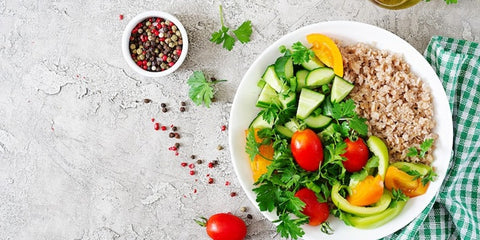Processed meat is defined as any meat dish or ingredient that is modified in terms of shelf-life or taste. Meat processing is usually done through salting, smoking, and curing (adding the combo of sugar, nitrate, and salts). Other ways through which meat is processed include the addition of chemicals for preservation purposes.
Salted, cured, canned, dried, or smoked meat is referred to as . Nowadays, meat in its processed forms has become a preferred choice. Some common foods include cured bacon, sausages, salami, and hot dogs.
Processed meat is linked to an increased risk of cancer by many experts. In fact, a report by WHO (World Health Organization) says that meat is a type of carcinogen. A carcinogen is a substance that contributes to the formation of cancer cells in the body. The International Agency for Research on Cancer made WHO say that the consumption of processed meat is carcinogenic. Also, a remark was made about red meat. Its consumption is also being thought of as a possible danger to overall health.

Processed meat, having the potential to cause cancer, can increase the risk of bowel or colon cancer. It is believed that eating more than 700g of red meat weekly may lead to cancer cell formation in the stomach. Also, the risk of developing this cancer rises by almost 1.18 times with every 50g (raw weight) of processed meat consumed in a day. According to the Cancer Council of Australia, 18% of total bowel cancer cases may be caused by eating too much processed or red meat. Another research highlights the presence of certain naturally occurring and added harmful chemicals in processed meat.
Furthermore, processed meat is also linked to the following conditions:
- Hypertension or high blood pressure
- Chronic obstructive pulmonary disease
- Cardiovascular (heart-related) diseases
- High blood sugar level
- Excessive weight gain
Also, processed meat is high in saturated fats. This is why meat eaters are more susceptible to such diseases. Overall, eating red or processed meat regularly may be an unhealthy choice. Vegetarians or people who choose a vegan diet tend to live longer. They become less vulnerable to lifestyle conditions.

Thus, switching to veganism becomes a preferable option. There are other reasons for choosing veganism.
- A vegan lifestyle helps in preventing animal slaughter. In slaughterhouses, many animals are killed daily to produce food for humans. This is an alarming situation with regard to species extinction. It adversely affects the ecosystem of the planet.
- The inhumanity of keeping animals in factory farms is highlighted by a number of animal advocates. The animals received a limited space to survive.
- Eating animal-derived foods and processed foods also affects the environment. An increase in greenhouse gases, soil erosion, and land degradation.
Go vegan and save the Earth, Energy, Water, Soil, and most importantly, Life!


